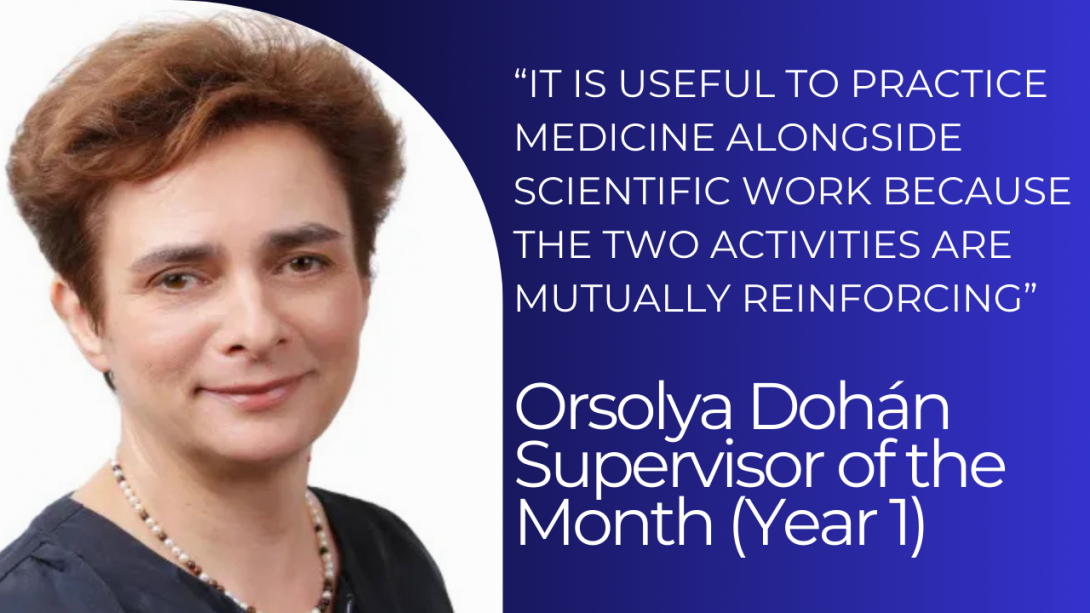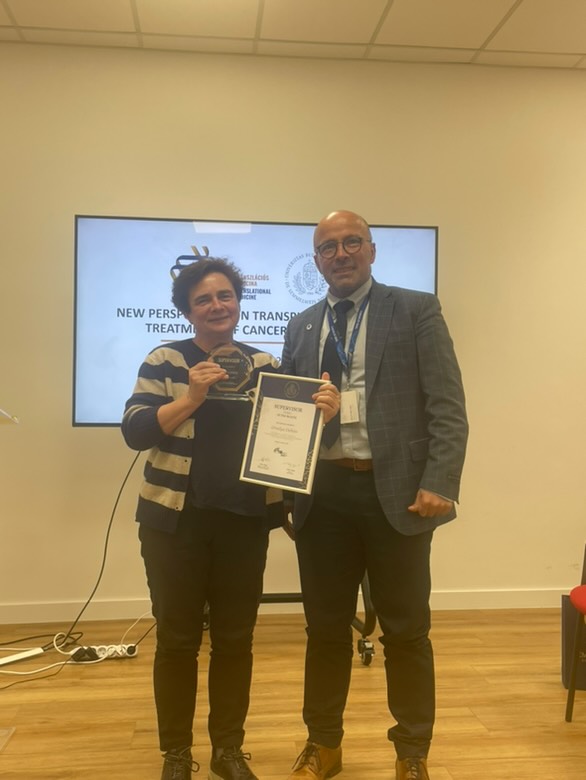
She is a dedicated supervisor of her two Ph.D. students researching pancreatic tumors, and is keen to help all other members of the Gastroenterology Group. She believes that research and patient care should go hand in hand, and the knowledge gained this way needs to be applied quickly in clinical practice. In February, Orsolya Dohán was named Supervisor of the Month (Year-1) at the Centre for Translational Medicine.

Orsolya Dohán has been working at the Centre of Excellence for Pancreatic Diseases for one and a half years. She is an accomplished clinician: internist, endocrinologist, oncologist with a strong basic and translational research background, previously obtained in the US. During her years at the Albert Einstein College of Medicine in New York, she conducted research on thyroid and breast cancer. “When I first heard about it, I was immediately attracted to the Centre of Excellence for Pancreatic Disease. It's a fantastic department where I can do both clinical work and research, and also participate in Ph.D. training. Currently, I help two Ph.D. students as a supervisor; both of them are working in patient care. I find it useful that they practice medicine alongside their academic work, because these two activities are mutually reinforcing.”
One of Dr. Dohán's Ph.D. students is Sándor Orbán, who has joined Semmelweis University from the Emergency Clinical County Hospital, Tirgu Mures. He is working at the Centre of Excellence for Pancreatic Diseases in addition to his Ph.D. training, and will join the oncology residency training next academic year. The other student is Melinda Piri, who is already working as an oncology resident at the Markusovszky University Teaching Hospital in Szombathely. „In her research, Melinda is evaluating the efficacy of multimodal treatments in oligometastatic pancreatic ductal adenocarcinoma. Her mission is to find treatment options to enhance the survival rates of this disease. Sándor was most interested in endocrinology, and he had already done research in this field. That’s why we decided to have him research neuroendocrine tumors. In his first project, he aims to find the best treatment modalities for pancreatic neuroendocrine tumors with liver metastases. He wants to clarify how the resection of the primary tumor affects survival in such cases.”
Dr. Dohán finds it inspiring to work with students and feels that she herself learns from this collaboration. She is also grateful to the methodological experts Amir Makolli and Mahmoud Obediat, as well as the statisticians at CTM, who provide unique support for the research. „Such complex background support is something I have only found in the United States yet, and this is unique in Hungary. This is why I consider the CTM Ph.D. program excellent. Besides work and research, I think it is also important for everyone to take time for relaxation, and I would like to draw the attention of my students to this. Active rest is the best, for example, going to a concert or for a run. I myself like to go for long walks in nature. Then I let my nerve cells run free and let them run wild.”
(Emese Szabó)